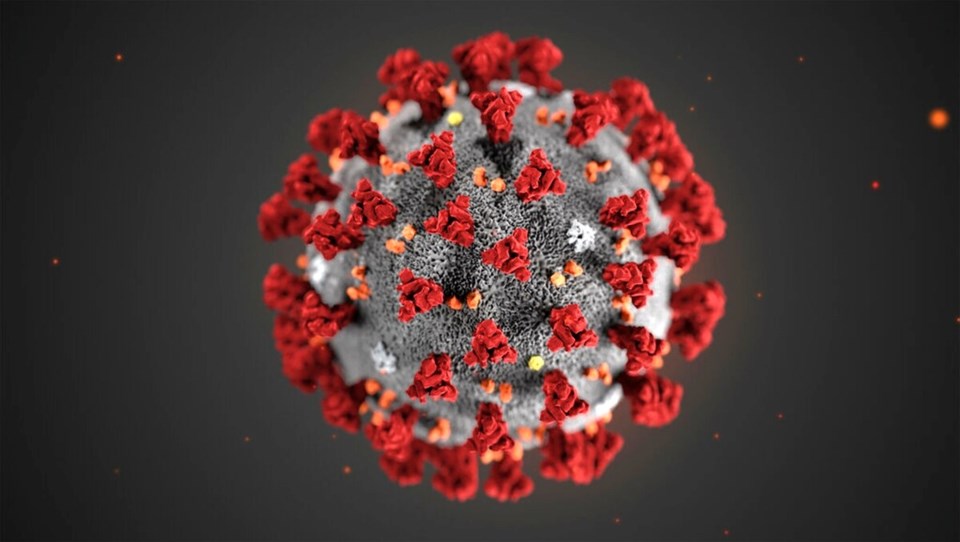With Christmas less than two weeks away and New Year’s a week after that, Manitoba’s chief public health officer said he was concerned about the upcoming holiday season Dec. 14, the same day that nine more deaths due to the virus were announced, bringing the province’s total to 499 since the pandemic began.
“If we let our guard down we could see a lot of transmission,” said Dr. Brent Roussin, noting that despite a small drop in the number of new daily cases and hospitalizations due to the virus recently, the test positivity rate remains high, at 13.6 per cent. “I’m still concerned about the test positivity.”
Manitoba saw 241 new cases of COVID-19 announced Monday, including 23 in the Northern Regional Health Authority. The new northern cases included eight in the Island Lake health district, and four each in the Bunibonibee/Oxford House/Manto Sipi/God’s River/God’s Lake, The Pas/Opaskwayak/Kelsey and Thompson/Mystery Lake health districts.
The Shamattawa/York Factory/Tataskewyak/Split Lake health district leads the north in active cases with 252 as of Monday, most of which are in the remote fly-in Shamattawa First Nation, which has about 1,300 residents.
Churchill-Keewatinook Aski NDP MP Niki Ashton said the chief of Red Sucker Lake First Nation, another remote fly-in community near the Manitoba-Ontario boundary, is battling an outbreak of the virus.
“People are telling me they are terrified of what is happening,” Ashton said in a written statement. “The First Nation has called for assistance from the federal government including military assistance. I have been advised by the community that a military mission will be arriving. The crisis in Red Sucker Lake, like in Shamattawa, points to how quickly a spread of COVID-19 can occur. This crisis also highlights the critical need for medical resources to be made available in and outside the community. This crisis also highlights the fact that First Nations must receive the vaccine they need and deserve on a priority basis.”
Keewatinook NDP MLA and Indigenous relation critic Ian Bushie said Monday that First Nations people can’t rely on Premier Brian Pallister to support them through the outbreaks.
“Rather than do the right thing and put jurisdictional questions aside to act quickly on behalf of Indigenous families, he has tried to avoid responsibility and sow division in our province,” said Bushie, who has written to federal Indigenous Services Minister Marc Miller to ask him to get the Canadian military make an immediate assessment of each First Nation’s needs.
“I am confident that just as the assessment in Shamattawa First Nation showed, there is an immediate need for additional medical personnel, isolation units and field hospitals in our communities,” said Bushie. “Where the Pallister government has failed the federal government must step in. Our First Nation communities need help now.”
There have been more than 1,500 cases of COVID-19 in the north since the pandemic began, and there are 683 cases currently considered active. The 12th death of a northerner from the virus was announced by the province Dec. 13.
Across Manitoba, there were 303 people in hospital due to COVID-19 on Monday, including 27 from the NRHA, and 39 people in intensive care, one of them from the north. There were also another 80 people who previously had COVID but are no longer considered infectious still in hospital, said Manitoba’s chief nursing officer Lanette Siragusa, and eight in that same category still receiving intensive care. Of the 64 Manitobans on ventilators in intensive care units as of Dec. 14, 34 have or have had COVID, she said.
“[The health care system] continues to be strained due to the surge in COVID patients,” Siragusa said.
Roussin said that, despite phone lines being jammed Dec. 13 with people not eligible to receive the first doses of the COVID-19 vaccine arriving in Manitoba this week, about two-thirds of the appointments for the first 900 recipients, all critical health care workers, have been booked and that the remainder would likely be booked by the end of Monday.
He cautioned, however, that the arrival of the vaccine will not mean an end to public health restrictions in the short term, as only about seven per cent of Manitobans will be vaccinated by the end of March.
“We’re not going to see that herd immunity effect in the first quarter,” Roussin said, as it requires at least 60 per cent of the population to be vaccinated for herd immunity to occur.




